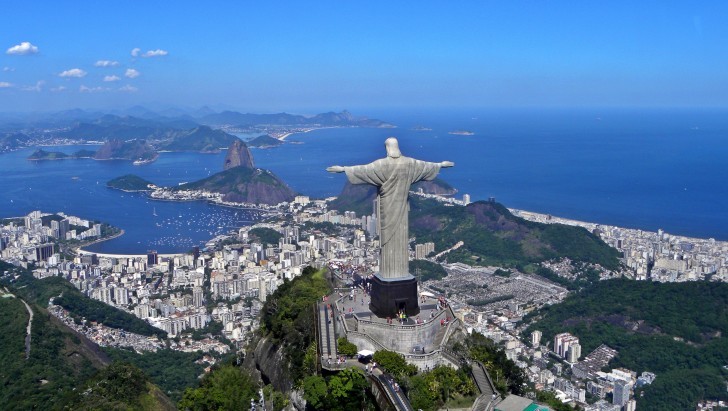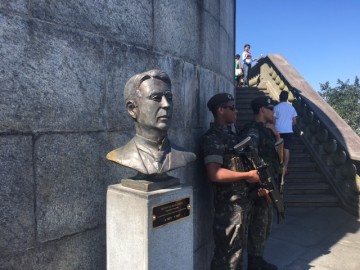Dispatches from the Rio Olympics from Professor Victor Matheson
Thursday, August 04, 2016

The 2016 Summer Olympic Games begin on Friday here in Rio de Janeiro. Nearly ten years ago, Brazil decided to gamble on hosting the world's two largest sporting events back to back: the 2014 World Cup and this year's Olympics. The question for economists like myself is whether these types of "mega-events" are a good investment for the economy.
I have been a long-time critic of public spending on sports events and stadiums (including the proposed Providence baseball stadium). I am here in Rio looking at the preparations and talking with organizers to learn more about how Brazil is trying to make this work.
Unfortunately, keeping athletes and spectators safe has become a major burden for hosts of mega-events. A reported 85,000 military troops are will be stationed in Rio during the Games, and the total security budget is likely to be around $1.5 billion. This works out to a cost of over $100 per ticket sold. Security costs alone for this year's event are likely to exceed the entire cost of the 1984 Summer Olympics in Los Angeles, even after accounting for inflation, and security expenditures have gone up by a factor of 6 since 9/11/01. These costs make it difficult for any country to make a profit on the Olympics, even if all of the infrastructure is in place already. While Brazil and Rio may benefit from the long-term legacy of the Olympics, in the short-run, it is impossible to make the books balance when it costs the organizers more to protect the fans than it is charging them for tickets.

Related Articles
- The Road To Rio: Xfinity’s New Olympics Coverage Platform
- NBA Stars M.I.A. In Rio: America Needs the Rio Olympics, Even If NBA Stars Aren’t Fully on Board
- It Takes Two To Make The Rio Olympics
- IAAF Refuses to Lift Ban on Russian Track & Field Athletes for Olympics






 Delivered Free Every
Delivered Free Every
Follow us on Pinterest Google + Facebook Twitter See It Read It